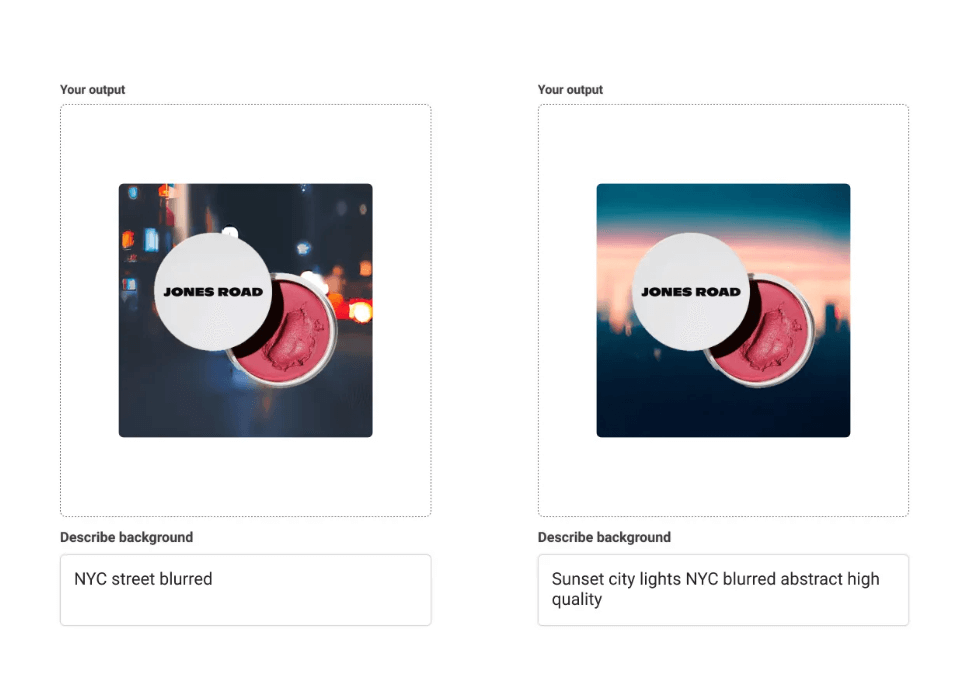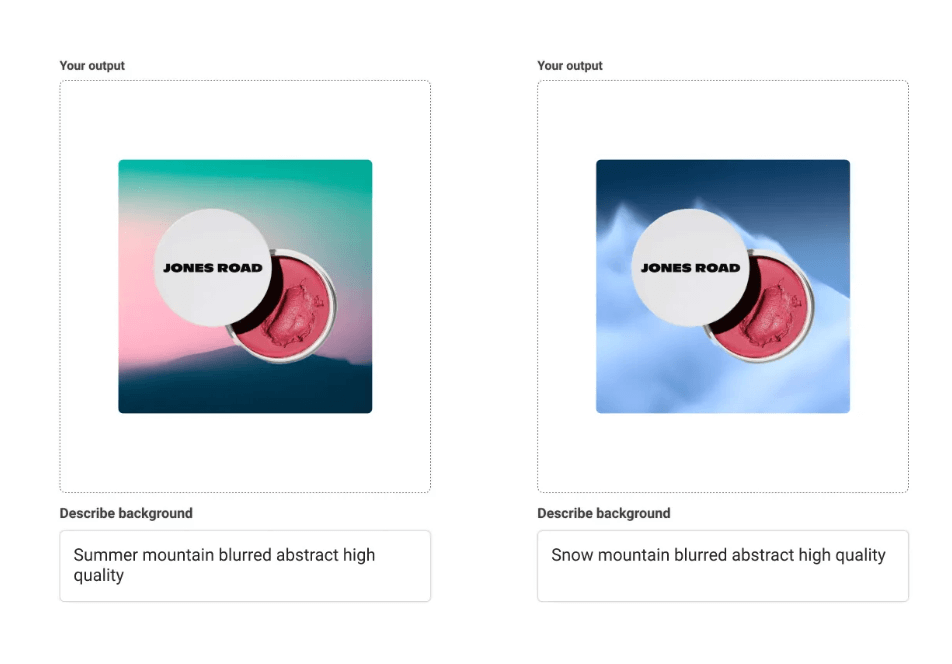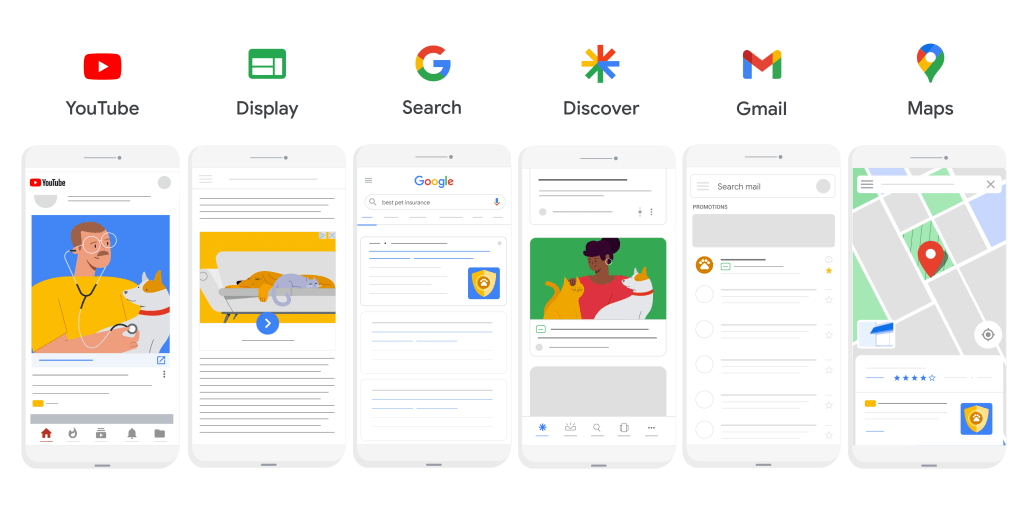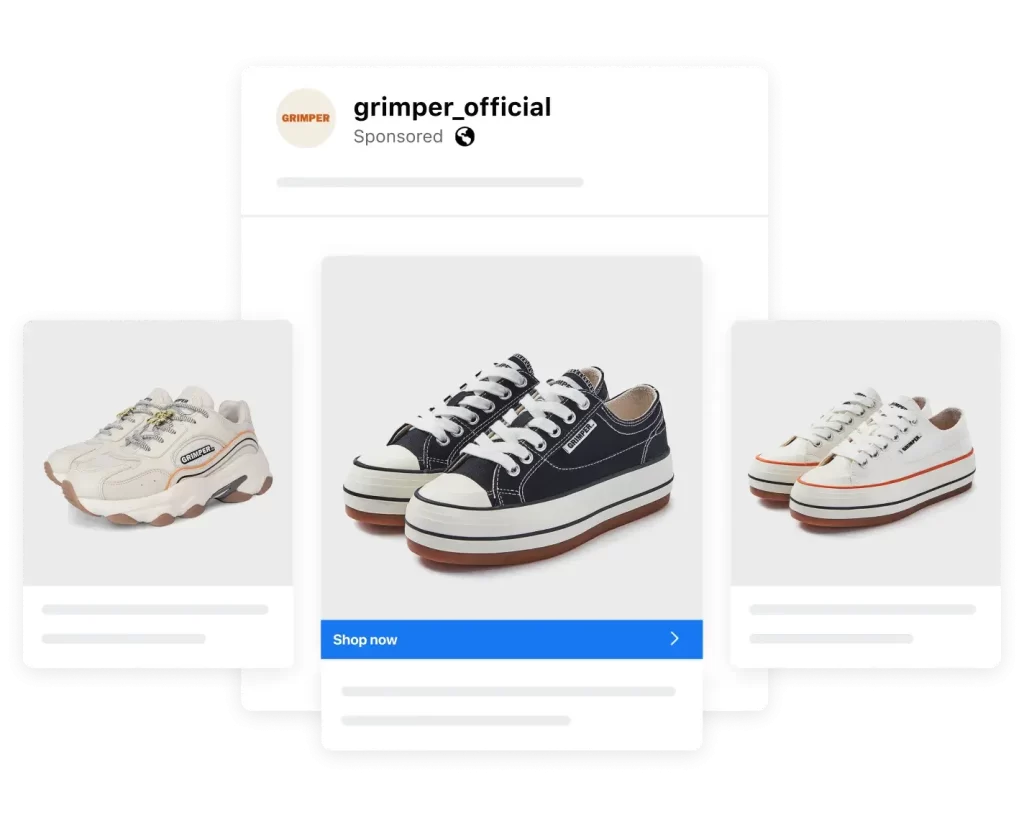The future of digital marketing is here.
And by that, we mean Artificial Intelligence (AI).
Artificial Intelligence is becoming part of our daily lives, including self-driving cars, voice assistants like Siri and Alexa.
But not only that, we’re in the age of technological innovation, and AI has emerged as a powerful tool for marketers, transforming the way we work. Now, we can automate content generation, gaining precious time and delivering personalized experiences to our target audience. Moreover, AI-powered insights enable us to understand our customers better than ever before.
In this article, we’ll touch on the topics of:
- Introduction to AI & Marketing
- Pros & Cons of AI in Digital Marketing
- Content Creation in the Age of AI
- Leveraging AI for Advertising
- Performance Max ads
- Dynamic ads
- Future Trends and Considerations of AI
- Conclusion
Let’s get started!
Introduction of AI and Marketing
AI and marketing came together in the 1990s. A “customer segmentation” software was created to help marketers better understand their customer base.
Customer segmentation means dividing a larger customer population into smaller groups based on shared characteristics or behaviors.
The tool then utilized algorithms like clusters to analyze vast datasets of customer information. It then identified patterns among customers based on attributes, such as demographics, purchasing behavior, interests, and more. By grouping customers with similar characteristics together, marketers gained valuable insights into their audience segments and could develop targeted marketing strategies.
This is the foundation of digital marketing as we know it. Knowing the customer, being able to predict their behavior and creating campaign messaging tailored towards them meant more sales.
Pros & Cons of Artificial Intelligence in Digital Marketing
Pros of AI in Digital Marketing
Enhanced Personalization
Artificial Intelligence makes marketing personal by diving deep into data to understand what individuals like, how they behave, and what interests them. It helps deliver tailored experiences that resonate with each person.
Improved Time Efficiency
AI takes care of those repetitive marketing tasks that can eat up your time, like creating content and optimizing campaigns. This frees you up to focus on the strategic stuff that really moves the needle.
Advanced-Data Insights
AI algorithms are like data superheroes, quickly sifting through massive datasets to extract valuable nuggets of information. These insights fuel your marketing strategies and decision-making.
Better Audience Targeting & Segments
With AI, you can become a master of precision targeting and segmentation. It helps you reach the right people, at the right time, with the right messages, maximizing your chances of hitting marketing bullseye. In addition, AI lead generation tools enable you to swiftly identify and connect with potential customers.
Elevated Customer Experience
AI-powered chatbots and virtual assistants provide instant and personalized customer support, making people feel like they’re getting VIP treatment.
Do you know what is a good NPS? Net Promoter Score (NPS) is an important customer satisfaction and loyalty marketing metric. It helps create memorable experiences that keep customers coming back for more.
Cons of AI in Digital Marketing
Ethical Concerns
AI brings up important ethical considerations like data privacy, transparency, and the potential for biases in decision-making algorithms. It’s crucial to navigate these challenges responsibly and with transparency.
Cost and Accessibility
Implementing AI can be pricey, which can be a roadblock for small businesses with limited resources. Ensuring accessibility for all requires finding affordable solutions or alternative approaches.
Over-reliance
While AI is great, relying too much on algorithms can stifle human creativity and intuition. It’s important to strike a balance between leveraging AI’s power and injecting human ingenuity to keep your marketing campaigns fresh and original.
Data Security Concerns
Handling vast amounts of customer data in AI-driven marketing systems comes with security risks. Safeguarding this data is paramount to protect your customers and your brand’s reputation.
To do this, you could consider working with a compliance specialist like DataGuard to get your ISO 27001 certification. Achieving a standardized and internationally recognized level of data security puts you in a strong position not only to fend off threats, but also impress clients and customers alike. So if this is a concern, go the extra mile rather than taking a chance.
Potential Learning Curve
Adopting AI in digital marketing may demand a learning curve and specialized skills. It can be challenging for marketing teams without prior experience or access to the necessary expertise.
Remember that the specific pros and cons can vary depending on how you apply AI in your marketing efforts. Embrace the positives while mitigating the negatives to make the most of this evolving technology.
Content Creation in the Age of AI
A big portion of digital marketing is all about creating interesting and engaging content like blog posts, videos, and social media posts. Branded content is the secret sauce that helps you build your brand, gain trust, and connect with people in a meaningful way. By sharing valuable and interesting content, you can drive more visitors to your website, keep them coming back for more, and ultimately turn them into loyal customers.
AI has revolutionized the way marketers approach content creation, offering exciting possibilities and empowering businesses to create more engaging and effective content.
Among these innovations, AI blog writing tools stand out by significantly streamlining the content generation process, enabling marketers to produce high-quality, SEO-optimized articles with unprecedented efficiency.
Content Generation
With sophisticated algorithms and natural language processing capabilities, AI tools can generate content like blog articles, social media posts, and product descriptions.
For example, AI Essay Writer explores the profound impact of artificial intelligence on content creation, reflecting on its transformative role in shaping the future of digital marketing.
Personalization and Customization
By analyzing vast amounts of data, including demographics, browsing behavior, and past interactions, AI can tailor content to individual preferences. This level of personalization helps marketers create targeted and relevant content that resonates with their audience, ultimately enhancing engagement and building stronger connections.
Data-Driven Insights for Optimization
AI algorithms can analyze user behavior, engagement metrics, and conversion data to identify patterns and trends. These insights help marketers understand what content performs best, what topics or formats resonate with their audience, and how to optimize their content strategy for maximum impact.
Examples of AI-powered Content Creation Tools
AI in content creation brings automation, personalization, and data-driven insights to marketing. It streamlines content generation, tailors experiences for customers, and helps marketers optimize their strategies.
It’s important to note that AI doesn’t replace human work, but enhances it. Human expertise remains crucial in leveraging AI to create compelling, targeted, and optimized content that drives engagement and business success. AI is a valuable tool that combines human creativity with intelligent automation for remarkable results in marketing.
Get your notebooks out; here are some prominent examples of AI-powered content creation tools that might help you work even smarter:
Image and Video Editing
AI-powered tools have transformed the way marketers edit and enhance visual content through AI image editing.
These tools utilize machine learning algorithms to automate tasks such as image retouching, background removal, object recognition, and video editing.
Notable examples include: Adobe Photoshop, Adobe Sensei, Canva, Pixlr.
Here’s a great look at how anyone can easily pick up photo editing without using Photoshop:
Image Creation
AI technologies can also utilize deep learning models and algorithms to generate images.
For example, DallE, from OpenAI, generates imaginative images based on textual descriptions, fueling limitless creativity. Meanwhile, Midjourney’s AI image creation platform produces customizable, high-quality visuals.
In June 2023, Midjourney 5.2 recently rolled out a Zoom Out feature:
However, we want to highly emphasize that while these are fun to play around with, we advise caution before using these for commercial purposes, as the databases that the images are generated from are not always provided consensually and can result in legal ramifications and negative feedback from audiences.
Below are the ad examples of beauty brand, Jones Road utilizing AI-powered tools to create more variety and higher volumes of ad creatives.


Natural Language Generation (NLG) Platforms
NLG platforms leverage AI to generate human-like text based on predefined rules and data inputs. These tools can automatically create blog posts, product descriptions, social media updates, and even personalized emails.
Examples of NLG platforms include: Wordsmith, Articoolo, and Quill.
Content Curation and Recommendation Engines
AI-driven content curation tools help you gather relevant and engaging content from various sources, saving time and effort in manual searching. Recommendation engines, based on AI algorithms, analyze user behavior and preferences to suggest personalized content. Well-known examples in this space include Curata, Scoop.it, and Outbrain.
Social Media Management Platforms
Many social media management platforms employ AI to automate content scheduling, optimize posting times, and suggest relevant hashtags and captions. These tools help marketers streamline their social media efforts and enhance engagement.
Examples include Hootsuite, Sprout Social, and Buffer.
SEO Optimization Tools
AI-powered SEO tools use machine learning algorithms to analyze data, perform keyword research, and suggest content optimizations for improved search engine rankings. They help marketers identify relevant keywords, optimize website content, and track performance. Notable examples include SEMrush, Moz, and Ahrefs.
Quick tip: If you’re utilizing AI-content generators like ChatGPT to write longer form content like blogs, be mindful of not using 100% AI-generated content, or else search engines such as Google may penalize you for it. Always incorporate human touch to your writing. ZeroGPT.com is a AI detector tool to detect ChatGPT generated text, which can help you keep AI-content proportions in check. In addition, ZeroGPT offers an AI Paraphraser, AI summarizer, AI grammar and spell checker, Word counter, Citation generator, AI chatbot, email assistant and AI translator.
Here’s a quick glance at Google’s Bard AI generating a search result to match the user’s search query:

Leveraging AI for Advertising
With the ever-increasing complexity of digital marketing, startups can greatly benefit from partnering with specialized digital marketing agencies. These agencies possess the expertise, tools, and resources to help startups navigate the competitive landscape and develop effective branding strategies. Here are some key considerations when selecting a digital marketing agency for startup branding:
Google says AI is a business multiplier that helps you keep up with shifting demands and gain insights in a privacy-safe way. In the video, Privacy expert, Barbara Piermont (Ads privacy director of go-to-market strategy for Americas at Google) highlights benefits such as:
- Multiply Customer Connection: First-party data helps brands build proprietary data on customers for better targeting.
- Elevated expertise: Utilizing Google Analytics 4 and new conversion modeling etc can fill in the gaps for more accurate, holistic view of your results
- Better results: AI tools like Smart Bidding helps with optimization that helps ads perform more effectively
This Think With Google clip invites industry leaders to share insights on how their teams leverage the advantages of AI alongside creative and analytical expertise.
Two notable examples of AI-powered ad types are Performance Max ads and Dynamic ads. These ads leverage AI to optimize performance, engagement, and conversions. Let’s take a closer look below!
Performance Max ads
Performance Max ads are AI-powered ads on Google. They leverage machine learning and automation to optimize ad delivery and achieve optimal results. It allows marketers to create multi-format ads that can reach a broader audience. How it works is you would create and upload the ad images, copy, and landing page URLs, and the AI takes care of automatically generating ads in multiple formats that would be served across various channels, such as Google search engine results, Youtube, etc.
Let’s say you’re a travel brand. Performance Max ads can be delivered to audiences across Google Maps, Youtube and Hotel ads! This broad reach helps optimize your direct booking channel, allowing you to show up for their potential customers at various steps of the customer journey.

The advantage of Performance Max ads is that they leverage AI algorithms to optimize campaign performance. They have been found to achieve, on average, over 18% more conversions while maintaining a similar cost per action. This means that Performance Max ads can deliver improved results by driving more conversions compared to traditional advertising methods.
Benefits of Performance Max Ads
- Enhanced reach and precise targeting capabilities
- Optimization for multiple ad formats and platforms
- Automated bid management and budget allocation for improved efficiency
- Increased potential for higher conversions and ROI
- Streamlined campaign creation and management
- Maximized exposure across Google’s channels
- Improved performance and cost-effectiveness
Performance Max ads allow marketers to create dynamic, multi-format advertisements that can be served across multiple channels. With AI-powered optimization, these ads help travel businesses reach more potential customers and achieve better conversion rates.
Dynamic Ads
Dynamic ads are personalized digital advertisements that automatically adapt and display relevant content to individual users based on their browsing behavior, interests, or past interactions.
The purpose of dynamic ads is to create a more tailored and engaging experience for each user, leading to improved results and increased conversion rates. By delivering content that is specifically relevant to the audience, dynamic ads offer a higher level of personalization, making them more effective in capturing attention and driving desired actions.

Facebook and Instagram are the two most prominent channels that utilize this technology.
An example would be retargeting ads that show you the products you’ve added to your shopping cart online that you ended up abandoning. Brands can upload their product catalog to Facebook and Instagram, and have the AI serve personalized ads to your customers.
Here’s a quick high-level overview of dynamic ads:
With Dynamic ads, you can also get creative and try different variations of ad design or copy and experiment with what resonates best with your audience!
Benefits of Dynamic Ads
- Improved relevance and engagement
- Personalized ads for better conversions
- Prevents ad fatigue and offers something fresh everytime
- Advanced targeting capabilities and audience segmentation options
- Save time and cost with automated ad process
- Scalable and flexible
- Streamlined campaign management with templates
- Valuable insights into user behavior and preferences for future ad strategies.
By dynamically adapting and displaying content in real-time, Dynamic ads significantly improve engagement and increase the likelihood of conversions. These ads also enable brand marketers to optimize their campaigns by leveraging AI algorithms for continuous A/B testing and iterative optimization. Overall, Dynamic ads empower brand marketers to deliver impactful and tailored experiences, driving better results and maximizing the effectiveness of their advertising campaigns.
Future Trends and Considerations
Here are some predictions and trends of AI in the near future.
1. Advancements in AI and its impact on advertising
- Continued development of AI technologies will lead to more sophisticated and efficient ad strategies.
- AI-powered algorithms will enable better audience targeting, personalized content creation, and automated campaign optimization.
- Enhanced predictive analytics and machine learning algorithms will provide valuable insights to drive marketing decision-making.
2. Ethical considerations and responsible AI usage in marketing
- As AI becomes more prevalent in marketing, it is crucial to address ethical concerns around data privacy, transparency, and potential biases in AI algorithms.
- Responsible AI usage involves ensuring fairness, accountability, and transparency in decision-making processes.
- Marketers need to strike a balance between the automation capabilities of AI and the human touch in maintaining meaningful connections with customers.
3. Emerging technologies and their potential influence on the industry
- Innovations like voice search, augmented reality (AR), and virtual reality (VR) will create new opportunities for AI-powered marketing experiences.
- Integration of AI with Internet of Things (IoT) devices will enable more personalized and context-aware marketing campaigns.
This synergy between AI and IoT can be harnessed effectively through the expertise of IoT product engineering teams that design and develop innovative IoT solutions. - Natural language processing and sentiment analysis will enhance customer feedback analysis and sentiment-driven marketing strategies.
These future trends and considerations highlight the exciting potential of AI in shaping the future of digital marketing. However, it is essential to navigate these advancements responsibly, keeping ethics and the customer experience at the forefront.
In Conclusion
Artificial Intelligence has transformed the world of digital marketing and advertising, providing marketers with powerful tools to drive success. Throughout this blog, we’ve seen how AI brings automation, personalization, and data-driven insights to content creation and advertising.
We encourage marketers to explore the possibilities of AI! Explore how it can help streamline processes, deliver personalized experiences, and optimize campaign performance. With AI as your ally, you can take your marketing initiatives to new heights and achieve remarkable success in the dynamic world of digital marketing!












